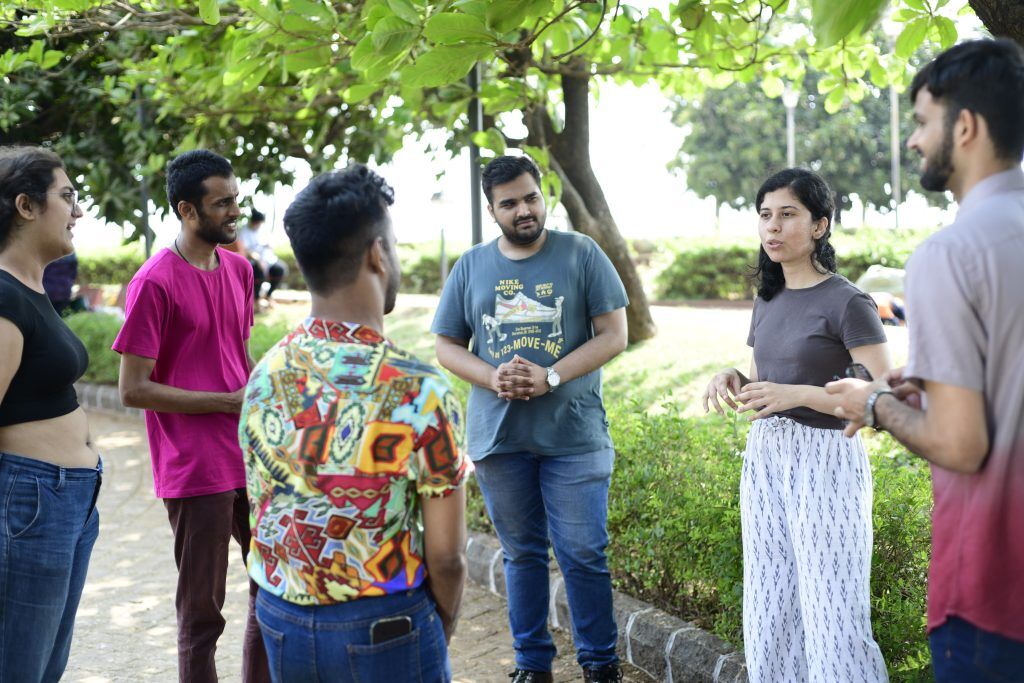
This Mental Health Month, as the world focused on workplace mental health, One Future Collective undertook the Civil Society Wellness Campaign—a critical initiative dedicated to the wellness of civil society workers. While civil society organisations are on the frontlines advocating for social change and providing essential services, the wellness of the people working within these organisations is often de-prioritised and under-resourced.
“During the pandemic, […] there was immense compassion fatigue and lack of institutional infrastructural support that we weren’t really able to address because this was a category of workers that was completely invisibilised when it came to wellness, and rights, and just any sort of social protection at the workplace.”
— Vandita Morarka, Founder and CEO, OFC
When we think of wellness in civil society, the initial hurdles that come to mind are often managing heavy workloads, burnout, and vicarious trauma. However, these challenges do not operate in a vacuum—they are shaped by the sector’s unique demands. The root causes of these wellness issues are systemic, embedded in structural inadequacies, cultural narratives, and regulatory pressures. Some sector-specific challenges include the absolute absence or inadequate implementation of health and accessibility policies, especially through an inclusive, intersectional lens; power hierarchies within organisations; public narratives about civil society workers; and limited, often precarious funding that is further complicated by regulatory frameworks and the Non-Profit Industrial Complex.
With this in mind, our idea of wellness extends beyond the mental and physical health of individuals to their experiences of safety, dignity, and belonging, as well as to workers’ access to rights within the civil society ecosystem. Workplace wellness, as defined by the International Labour Organisation, encompasses “all aspects of working life, from the quality and safety of the physical environment, to how workers feel about their work, their working environment, the climate at work and work organisation.” This highlights the need to simultaneously focus on individual as well as structural and cultural issues when addressing the wellness of civil society workers.
They take care of others, who will take care of them?
— Drishti, Student, Jai Hind
As a part of the Campaign, we’re launching the Civil Society Wellness Protocol. This Protocol has been informed by our research on the experiences of frontline workers during the pandemic, our panel discussion on wellness in civil society organisations, our conversations with the public to understand cultural narratives about the civil society sector, as well as our lived experiences as civil society workers.
Over the next year, we will be developing principles, measurable indicators, and tools that reflect the true wellness needs of CSO workers. The principles we are developing are iterative, designed to evolve alongside sector needs. We’re building this with you, seeking your input, feedback, and collaboration to ensure these efforts reflect the realities and needs of our sector.
Civil Society Wellness Principles
- Intersectional Solidarity: We embrace the complexity of identities and experiences, fostering an environment where diverse perspectives not only coexist but strengthen our collective work and vision.
- Liberative Accessibility: We recognise the need to dismantle accessibility barriers and create liberative spaces that meet physical, social and cultural inclusive standards.
- Power-Shifting Praxis: We actively work to identify, challenge, and transform existing power dynamics, striving for more equitable distribution of influence and resources within our circles and beyond.
- Intergenerational Engagement: We cultivate opportunities for continuous shared learning across age divides through flexible leadership models, embracing the transformative potential of intergenerational dialogue and collaboration.
- Reciprocal Accountability: We cultivate shared responsibility for our actions and impacts, emphasising mutual respect and collective growth among all parties involved.
- Brave Spaces: We acknowledge the need for systemic protective measures that balance psychological and physical safety, ensuring an environment where individuals feel empowered to speak up and express themselves openly.
- Responsive Healing: We adopt informed responses to harm, grounding each grievance in its specific context while prioritising trust, respect, and empathy for the overall wellness of the individual.
- Ethical Ecosystems: We expand our ecological consciousness to encompass the interconnectedness of the social, economic, and environmental impacts of our actions and meet ESG standards.
As we embark on the journey of developing and implementing the Civil Society Wellness Protocol, we recognise that this initiative is not just a set of principles but a collective effort. Together, we can cultivate a safer, more supportive, and socially just civil society. If you have any ideas, suggestions, or feedback, please write to us at vandita@onefuturecollective.org by the end of 2024, so we can consider your inputs when we revisit this draft of principles.

